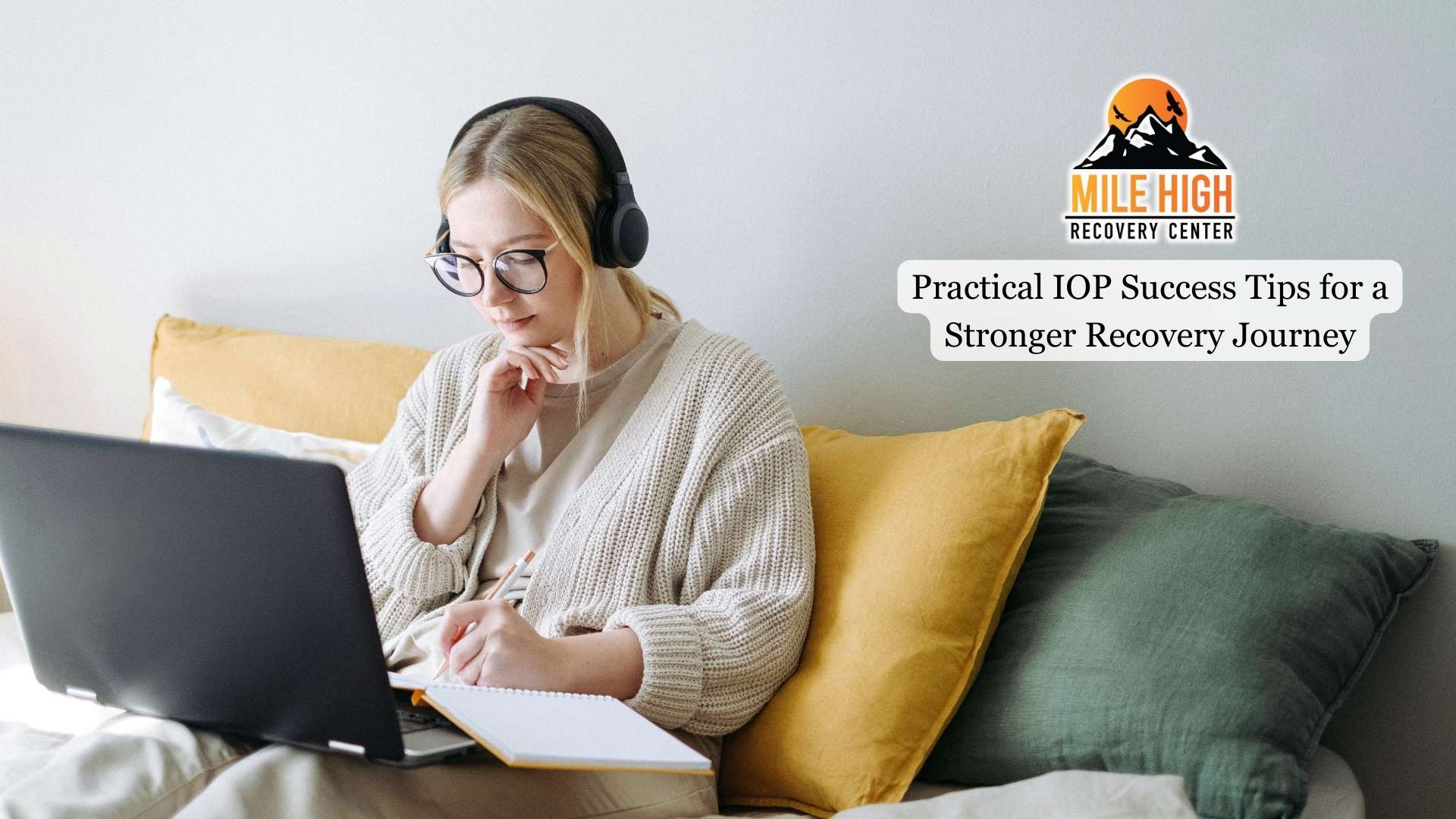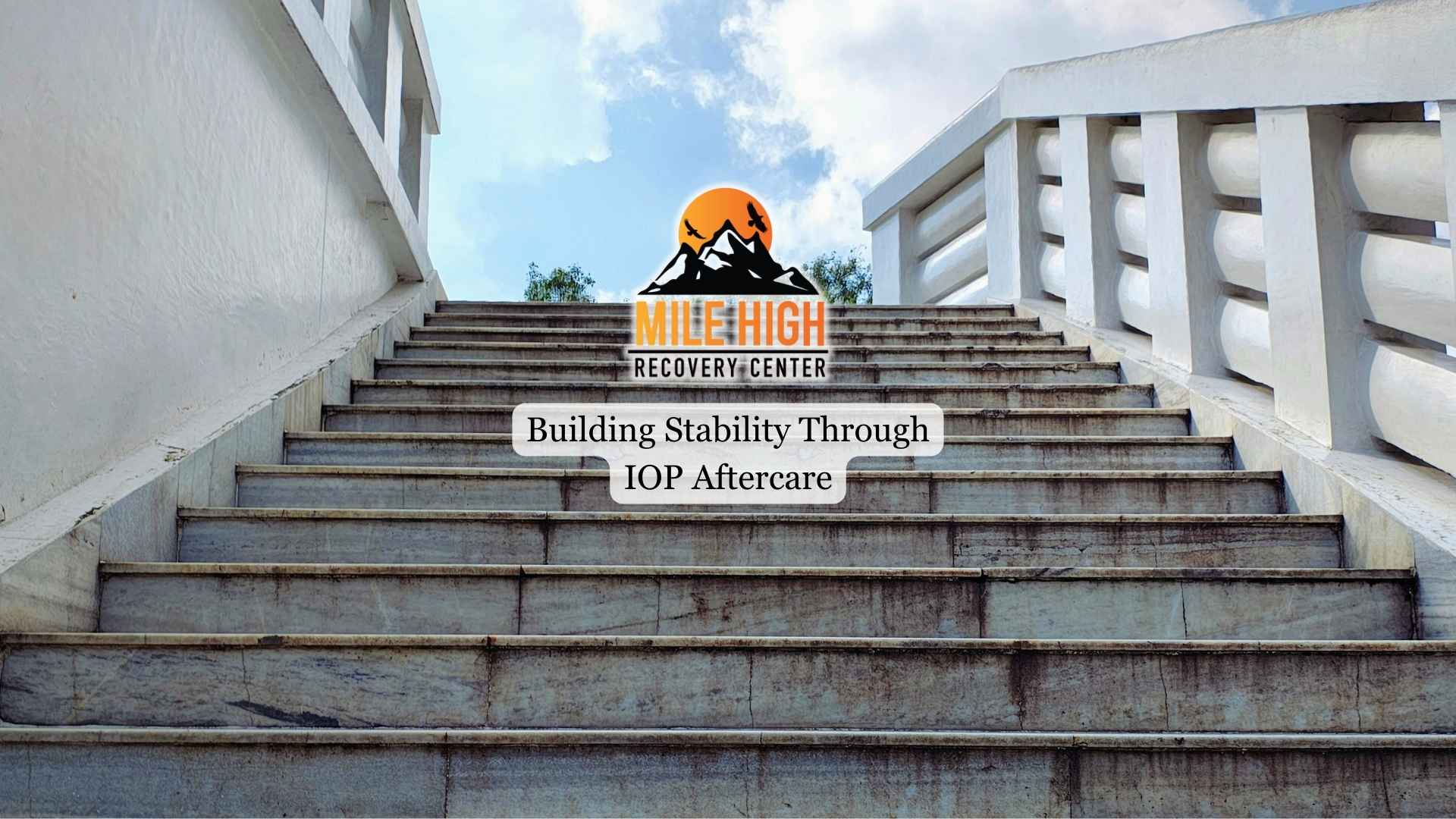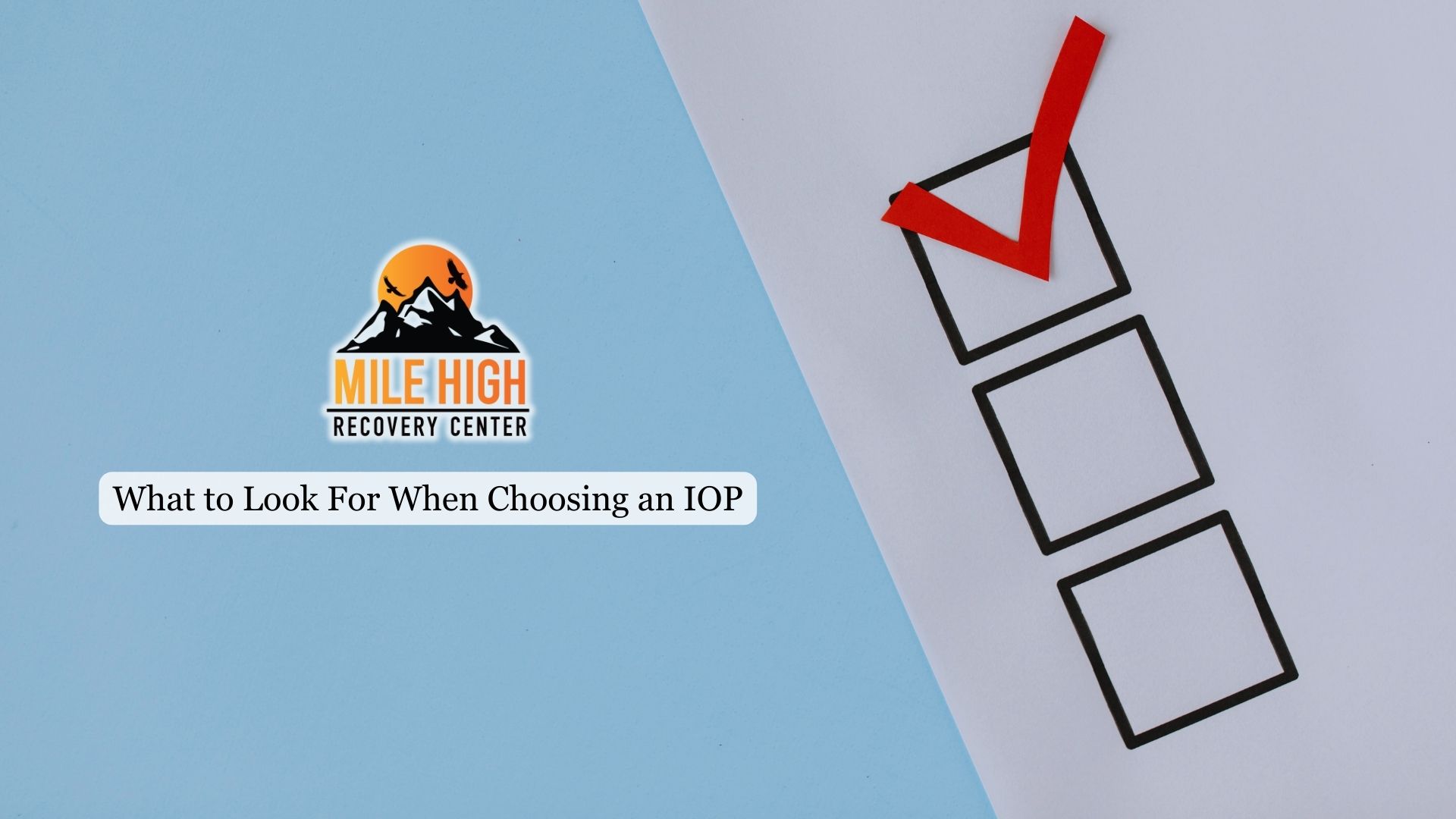You’re standing at a crossroads in your recovery journey, needing structured support but unsure about leaving your job, your family, or the life you’ve worked so hard to build. Maybe you’ve completed detox and feel ready for the next step, or perhaps you’re stepping down from residential care and need continued guidance. An intensive outpatient program for addiction treatment might be exactly what you’re looking for, offering comprehensive care while allowing you to sleep in your own bed each night.
Intensive outpatient programs, commonly known as IOPs, represent a vital middle ground in the continuum of addiction treatment. They provide the structured, evidence-based care you need to address substance use disorders while honoring your daily responsibilities and connections. Intensive outpatient treatment has become increasingly recognized as an effective approach for individuals who require more support than traditional outpatient care but don’t need 24-hour supervision.
In this article, you’ll discover exactly how intensive outpatient programs work, from the therapeutic approaches used to the daily schedule you can expect. We’ll explore who benefits most from this level of care, what makes an IOP different from other treatment options, and how you can maintain your everyday life while prioritizing your healing journey.
Quick Takeaways
- Intensive outpatient programs typically provide 9–19 hours of weekly treatment while allowing you to live at home.
- An IOP includes individual therapy, group therapy, and family sessions to address substance use disorders
- This treatment option works for people who have completed detox and need structured support while maintaining daily responsibilities
- Programs treat both addiction and co-occurring mental health conditions with evidence-based approaches
- An IOP offers a middle ground between inpatient treatment and standard outpatient care for sustainable recovery
What Is An Intensive Outpatient Program?
An intensive outpatient program is a structured addiction treatment model that provides comprehensive behavioral healthcare without requiring you to reside at a treatment facility. Think of it as receiving the therapeutic intensity of inpatient care while maintaining the flexibility to continue working, caring for your family, and sleeping at home. An IOP offers a minimum of nine hours per week of structured programming, though many programs provide between 9 and 19 hours weekly, depending on your specific needs.
This level of care sits perfectly between residential treatment and standard outpatient services in the addiction treatment continuum. While day treatment programs might require you to spend entire days at a facility, intensive outpatient allows for greater flexibility in scheduling sessions around your daily lives. Treatment providers design these programs with real-world integration in mind, recognizing that your recovery happens not just in therapy rooms but in every aspect of your everyday life.
Understanding IOP Services And Structure
When you enter an intensive outpatient program, you’ll typically attend sessions three to five days per week, with each session lasting anywhere from two to four hours. This structure creates consistency and accountability while leaving room for work commitments, family time, and personal responsibilities. Most treatment centers offer multiple time slots throughout the day, including morning, afternoon, and evening options, so you can find a schedule that fits your lifestyle.
Your treatment plan will be carefully crafted based on a comprehensive assessment of your substance use history, mental health conditions, and personal circumstances. Individualized treatment plans significantly improve outcomes because they address your unique clinical issues rather than applying a one-size-fits-all approach. Programs balance various therapeutic modalities to provide the intensive level of support you need.
Who Benefits Most From Intensive Outpatient Treatment
Intensive outpatient care serves individuals at various points in their recovery process. You might be an ideal candidate if you’ve recently completed detox at an inpatient treatment facility and achieved medical stability, but need ongoing therapeutic support to build recovery skills. People commonly transition to an IOP after completing residential treatment, using it as a step-down level of care that gradually reintegrates them into their communities.
IOPs also work well if you’re dealing with substance use disorders alongside co-occurring mental health conditions like depression, anxiety, or trauma. Treating co-occurring disorders concurrently leads to better long-term outcomes than addressing them separately. You’re likely a good fit for intensive outpatient if you have a supportive living environment at home, can abstain from substance use between sessions, and possess the motivation to actively participate in treatment.
How Intensive Outpatient Programs Work

The mechanics of intensive outpatient treatment revolve around creating a structured yet flexible framework that supports your recovery while you maintain connections to your everyday life. Unlike inpatient programs, where treatment happens in isolation from your normal environment, an IOP deliberately integrates therapeutic work with real-world application. This allows you to immediately practice new coping skills, test recovery strategies in actual situations, and bring those experiences back to sessions for processing.
Your journey begins with a thorough assessment conducted by treatment providers who specialize in addiction medicine and behavioral health. This evaluation explores your substance use patterns, mental health history, medical needs, family dynamics, work situation, and previous treatment experiences. Treatment centers coordinate multiple therapeutic modalities to create a comprehensive program that addresses addiction from various angles.
The Treatment Structure And Schedule
Your typical week in an IOP setting might include sessions on Monday, Tuesday, and Thursday evenings from 6:00 to 9:00 PM, allowing you to work full days and attend treatment without sacrificing your employment. Other programs offer morning sessions for people who work evening shifts or afternoon options for those with more flexible schedules. Consistency is key; attending the same time slots each week creates routine and helps treatment become a natural part of your daily lives.
Most intensive outpatient programs organize their weekly hours around a combination of group therapy, individual counseling, and educational sessions. A standard three-day-per-week program might look like this:
| Day | Time | Activity | Duration |
| Monday | 6:00-9:00 PM | Process group therapy | 3 hours |
| Tuesday | 6:00-9:00 PM | Individual therapy | 3 hours |
| Thursday | 6:00-9:00 PM | Skills training & family session | 3 hours |
| Weekly Total | 9 hours |
This flexible scheduling allows you to maintain your job, care for children, attend school, or fulfill other responsibilities that matter to you. This real-world integration actually enhances treatment effectiveness because you’re learning to navigate recovery while managing the same stressors and triggers you’ll face long-term. You’re not living in a protective bubble; you’re building sustainable skills for your actual life.
Core Components Of IOP Treatment
Individual therapy forms the foundation of your personalized care in intensive outpatient treatment. During these one-on-one sessions, typically held weekly, you’ll work with a licensed therapist who specializes in addiction medicine to explore the underlying factors contributing to your substance use. These private conversations create space to discuss topics you might not feel comfortable sharing in group settings, process difficult emotions, and develop individualized coping strategies.
Group therapy represents the heart of most intensive outpatient programs, and research shows it’s remarkably effective for addiction treatment. Throughout the week, you’ll participate in various types of groups, including process groups where you share experiences and receive peer support, psychoeducational groups that teach recovery skills, and specialized groups focused on specific issues like relapse prevention. Group therapy for substance use disorders creates unique therapeutic benefits through shared experiences and mutual support.
Family therapy and family sessions recognize that addiction affects entire family systems, not just individuals. These sessions provide support for family members while improving communication and repairing damaged relationships. Your loved ones learn about addiction as a disorder rather than a moral failing and discover how to provide meaningful support without enabling. Additional components include psychiatric services where specialists can evaluate whether medications might support your recovery, and coordination with your primary care provider to ensure all aspects of your health receive attention.
What To Expect During IOP Treatment

Walking into your first intensive outpatient session often brings a mixture of hope, anxiety, and uncertainty. You might wonder what people will think of you, whether you’ll fit in, or if you’re ready to share your story. These feelings are completely normal. Early sessions focus on helping you get comfortable with the environment, understand program expectations, and begin building connections with both staff and peers who will support you throughout your recovery.
Your experience in an IOP will involve regular engagement with evidence-based therapeutic approaches that have proven effective for treating substance use disorders. You’ll learn practical skills you can apply immediately in your everyday life. Programs balance structure with flexibility, providing consistency through regular session times while adapting to your evolving needs as you progress through treatment.
Building Skills And Support Systems
Cognitive behavioral therapy forms the backbone of most intensive outpatient programs, teaching you to recognize thought patterns that lead to substance use and replace them with healthier ways of thinking. You’ll learn to identify triggers and develop specific strategies for managing these triggers, without turning to substances. Skills like challenging distorted thoughts, practicing mindfulness, and using healthy coping mechanisms become tools you can access whenever you need them.
Relapse prevention strategies receive significant attention throughout your time in an IOP. Rather than treating relapse as failure, your treatment team helps you understand it as a process that often begins with subtle warning signs days or weeks before actual substance use occurs. You’ll create a detailed relapse prevention plan identifying your personal warning signs, high-risk situations to avoid or manage carefully, and people you can call for support. Understanding relapse as a process rather than an event allows for early intervention.
Group therapy sessions in an IOP create powerful opportunities for connection and mutual support. You’ll meet people from various backgrounds who share the common experience of struggling with addiction. These connections often surprise people. Discovering you’re not alone, that others understand your challenges without judgment, and that you can both receive and provide support creates a sense of belonging many people haven’t felt in years.
Addressing Addiction And Mental Health Together
Intensive outpatient programs effectively address a wide range of substance use disorders, from alcohol use disorder to dependencies on various substances. Treatment providers understand that regardless of which substance you’ve been using, the underlying factors driving addiction (trauma, untreated mental health conditions, learned coping patterns) often share similarities across different addictions.
The integrated treatment model simultaneously addresses co-occurring mental health conditions that frequently accompany substance use disorders. According to SAMHSA’s 2022 National Survey on Drug Use and Health, about 23.6 million adults in the United States live with both a mental illness and a substance use disorder. Depression, anxiety, post-traumatic stress disorder, and other conditions often interact with addiction in complex ways.
Your treatment team coordinates care following guidelines from the Mental Health Services Administration to ensure you receive evidence-based treatment for all conditions affecting your well-being. This might involve therapy specifically targeting trauma, medication management for mental health conditions, or specialized groups addressing the relationship between your emotional health and substance use. Rather than treating these as separate issues, the goal is to understand how they influence each other.
Intensive Outpatient Vs. Other Treatment Options

Understanding where intensive outpatient fits within the broader landscape of addiction treatment helps you make informed decisions about the right level of care for your situation. Treatment exists on a continuum, with different intensity levels designed to match the severity of addiction, medical needs, living environment stability, and support system strength.
Comparing IOP To Inpatient Programs
Inpatient treatment requires you to live at an inpatient treatment facility full-time, typically for 30 to 90 days. You receive care 24 hours a day in a controlled environment, removed from triggers and stressors in your everyday life. This intensive level of care becomes necessary when you need medical supervision during detox, have severe co-occurring mental health conditions requiring constant monitoring, or lack a safe or stable living environment.
Key differences between intensive outpatient and inpatient treatment centers on flexibility and real-world integration. While inpatient programs provide round-the-clock support and remove you from potentially triggering environments, an IOP allows you to immediately apply recovery skills in actual situations. You’re learning to navigate cravings while grocery shopping, manage work stress without substances, and maintain sobriety while attending family gatherings.
Cost represents another significant difference between these treatment options. Intensive outpatient treatment typically costs substantially less than residential care because you’re not paying for room, board, and 24-hour staffing. Insurance plans often provide better coverage for an IOP than for inpatient programs, making it a more financially accessible option for people who medically qualify for this level of care.
IOP Vs. Standard Outpatient Care
Standard outpatient treatment involves meeting with a therapist or counselor once or twice weekly for individual sessions, typically lasting 50 to 60 minutes each. This lower intensity level of care works well for people with mild substance use disorders, strong support systems, and stable living situations. It also serves as an appropriate next step after completing intensive outpatient.
Primary differences lie in frequency, duration, and programming structure. Intensive outpatient provides significantly more contact hours and includes multiple therapeutic modalities rather than just individual counseling. The group therapy component of an IOP creates peer support and accountability that standard outpatient care doesn’t typically offer.
Choosing between an intensive outpatient and a regular outpatient program depends on the severity of your substance use, the presence of co-occurring conditions, your previous treatment history, and your recovery environment. If you’ve tried standard outpatient without success, need more structure and accountability, or require treatment for co-occurring mental health conditions alongside addiction, an IOP offers the additional support necessary for effective recovery.
Getting Started With an IOP And Life In Recovery

Taking the first step toward intensive outpatient treatment requires courage, but understanding the admission process and what to expect removes some of the uncertainty that might hold you back. Treatment centers want to make beginning an IOP as straightforward as possible. Most facilities offer phone consultations where you can ask questions, discuss your situation, and learn about their specific program before committing to admission.
Practical aspects of starting an IOP involve coordination between you, the treatment center, and your insurance company. You might worry about taking time off work, but many people qualify for protections under laws like the Family and Medical Leave Act (FMLA) and the Americans with Disabilities Act (ADA), which can provide job-protected time off and protection from discrimination while you receive clinically recommended treatment.
Determining If an IOP Is Right For You
Medical and psychological criteria guide appropriate placement in intensive outpatient care. You’ll need to have completed detox if you were using substances that cause dangerous withdrawal symptoms, as an IOP doesn’t provide the medical monitoring necessary to safely manage acute withdrawal. Your vital signs should be stable, and you should be medically cleared to participate in outpatient treatment.
Psychological readiness involves your motivation to change and your ability to refrain from substance use between sessions. Treatment providers assess whether you recognize that substance use has become problematic in your life and whether you’re willing to actively participate in recovery work. You don’t need to feel completely confident, but you do need some willingness to try.
Assessment of your living environment and support system helps determine if an IOP provides adequate structure for your situation. Important considerations include:
- Do you live with people who support your recovery or with active substance users?
- Can you avoid people, places, and situations that might trigger relapse?
- Do you have at least one person you can call when struggling?
- Is your home environment safe and stable?
- Can you access transportation to attend sessions regularly?
Your honest answers to these questions help treatment providers match you with the appropriate level of care. If your environment presents significant challenges, your team may recommend additional support services or suggest starting with a more intensive level of care before transitioning to an IOP.
Managing Practical Considerations
Verifying your insurance coverage before beginning treatment eliminates financial surprises. Contact your insurance company’s behavioral health line and ask specific questions about IOP coverage. Important details include whether the treatment center is in-network, how many sessions your plan covers, what your copayment responsibility is, and whether you need prior authorization.
Treatment centers typically have admissions coordinators who can verify your benefits, submit prior authorization requests if required, and explain what you’ll owe. Facilities also commonly offer payment plans for people with high deductibles or limited coverage.
Balancing work responsibilities with IOP attendance requires some planning but is manageable for most people. If your program offers evening sessions, you might not miss any work at all. For people attending daytime programs, options include using paid time off, adjusting your work schedule temporarily, or working with your employer to create a flexible arrangement. Managing family responsibilities involves arranging childcare during session times and coordinating with your partner about household duties.
Planning For Long-Term Success
As you near completion of intensive outpatient treatment, typically after 8 to 12 weeks, your treatment team will work with you on continuing care arrangements. Graduation from an IOP doesn’t mean you’re done with treatment; it means you’re ready for a less intensive level of support. Most people step down to standard outpatient therapy, attending weekly individual sessions.
Your continuing care plan outlines specific strategies for maintaining recovery after an IOP. This plan identifies potential relapse warning signs specific to you, strategies for managing high-risk situations, people in your support network you can contact when struggling, and clear steps to take if you notice yourself slipping. Exploring your options for ongoing support helps you transition smoothly from an IOP:
| Continuing Care Option | Frequency | Best For | Key Benefits |
| Standard Outpatient Therapy | 1-2 sessions weekly | Maintaining progress after IOP | Individual focus, flexible scheduling |
| Mutual Support Groups | 1-7 meetings weekly | Ongoing peer connection | Free, accessible, community support |
| Sober Living Environment | Daily structure | Those needing housing support | Accountability, peer support, safe home |
| Medication Management | Monthly appointments | Co-occurring mental health conditions | Psychiatric oversight, medication adjustments |
| Alumni Programs | Varies | Staying connected to the treatment center | Continued relationship with providers |
Relapse Prevention
Key relapse prevention strategies include:
- Maintaining a consistent daily routine that supports your recovery
- Attending all continuing care appointments without exception
- Staying connected with your support network through regular contact
- Practicing stress management techniques daily
- Monitoring your mental health for changes that might increase relapse risk
- Participating in mutual support groups for ongoing peer connection
Building lasting support systems extends beyond professional treatment to include family members, friends, community organizations, and peer support networks. Your family members have likely participated in family therapy during IOP, learning how to provide meaningful support. Maintaining these improved relationships requires ongoing communication and mutual effort.
Some people need to return for additional support at various points in their recovery, and that’s completely okay. Recovery isn’t linear; it involves progress, setbacks, learning, and growth over time. If you notice warning signs of relapse or experience a significant life stressor, reaching out to your treatment providers demonstrates strength and self-awareness, not failure.
Common Questions About Intensive Outpatient Programs
What is an intensive outpatient program (IOP)?
An intensive outpatient program is a structured addiction treatment model providing 9-20 hours of weekly therapy while you live at home. An IOP includes individual counseling, group therapy, and family sessions to address substance use disorders. This level of care bridges the gap between inpatient treatment and standard outpatient services, offering comprehensive behavioral healthcare while you maintain daily responsibilities.
What happens at an intensive outpatient program?
During intensive outpatient treatment, you’ll participate in evidence-based therapies including cognitive behavioral therapy, relapse prevention training, and process groups. Sessions typically occur 3-5 days weekly and include individual therapy with addiction specialists, group therapy for peer support, family sessions, and psychiatric services when needed. You’ll learn practical coping skills while immediately applying them in your everyday life.
Who needs to attend an intensive outpatient program?
An IOP works best for people who have completed detox and need ongoing support while maintaining work or family commitments. You’re a good candidate if you have a stable living environment, can abstain between sessions, and possess motivation to participate actively. Intensive outpatient also serves individuals stepping down from inpatient programs or those with co-occurring mental health conditions requiring integrated treatment.
How long do intensive outpatient programs typically last?
Most intensive outpatient programs last 8-12 weeks, though duration varies based on your progress and specific needs. Treatment providers regularly assess your situation and adjust the timeline accordingly. Some people may need shorter programs, while others benefit from extended care. After completing an IOP, you’ll typically step down to standard outpatient therapy for continued support.
Do IOPs treat co-occurring mental health and addiction?
Yes, intensive outpatient programs effectively treat co-occurring mental health disorders alongside substance use disorders. An IOP provides integrated treatment addressing depression, anxiety, trauma, and other mental health conditions through specialized therapy, psychiatric services, and medication management when appropriate, following mental health services administration guidelines.
Finding Balance Between Structure And Freedom In Your Recovery Journey
Intensive outpatient programs offer a unique solution for people seeking comprehensive addiction treatment without stepping away from their lives completely. Recovery happens not in isolation, but through learning to navigate real-world challenges while maintaining sobriety. Regular therapy sessions, evidence-based treatment approaches, and professional guidance combine with the freedom to sleep in your own bed, maintain employment, care for family, and practice recovery skills in actual daily situations.
The flexibility inherent in intensive outpatient treatment makes it accessible for people at various stages of recovery and life circumstances. Whether you’re transitioning down from residential care, stepping up from unsuccessful outpatient treatment, or beginning your healing journey after completing detox, an IOP provides the intensive level of support necessary for addressing substance use disorders effectively. Recovery is absolutely possible with the right support system, evidence-based treatment, and your commitment to change.
If you are ready to see whether an intensive outpatient program is the right next step, Mile High Recovery Center is here to walk that path with you. We offer one of the top intensive outpatient programs in Denver, designed to pair seamlessly with the full continuum of care we provide. Our personalized IOP services keep you moving forward no matter what step you are in your recovery journey, helping you balance real-life responsibilities with the structure and support you need to heal. To learn more, you can contact us through our online form and we can talk about what recovery could look like for you.







